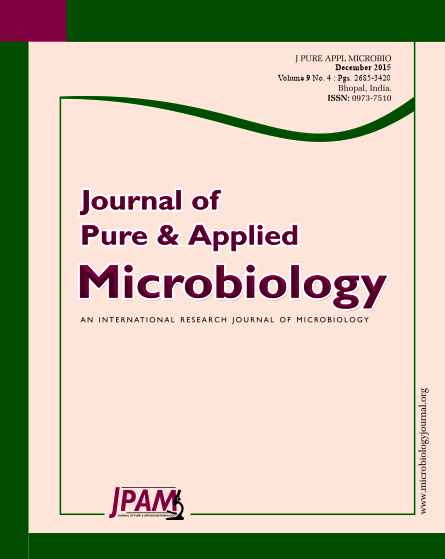In the present investigation two marine microalgae (Chlorella marina and Navicula f. delicatula) had been chosen for the antibacterial and antifungal metabolites studies. The effects of pH, temperature and light intensity were tested for the production of antimicrobial activity. The antibacterial and antifungal effects of different solvent extracts (chloroform, acetone, ethanol, methanol and water) of two microalgae were tested by agar well diffusion method for their antibacterial and antifungal agent (Staphylococcus aureus, Micrococus Luteus, Serratia marcescens, Pseudomonas aeruginosa, and Escherichia coli) and unicellular fungus (Candida albicans). Data showed that the pH, temperature and light intensity of the medium is very important for growth of microorganisms.
Optimization, Antimicrobial activity, Microalgae, Marine.
© The Author(s) 2015. Open Access. This article is distributed under the terms of the Creative Commons Attribution 4.0 International License which permits unrestricted use, sharing, distribution, and reproduction in any medium, provided you give appropriate credit to the original author(s) and the source, provide a link to the Creative Commons license, and indicate if changes were made.


